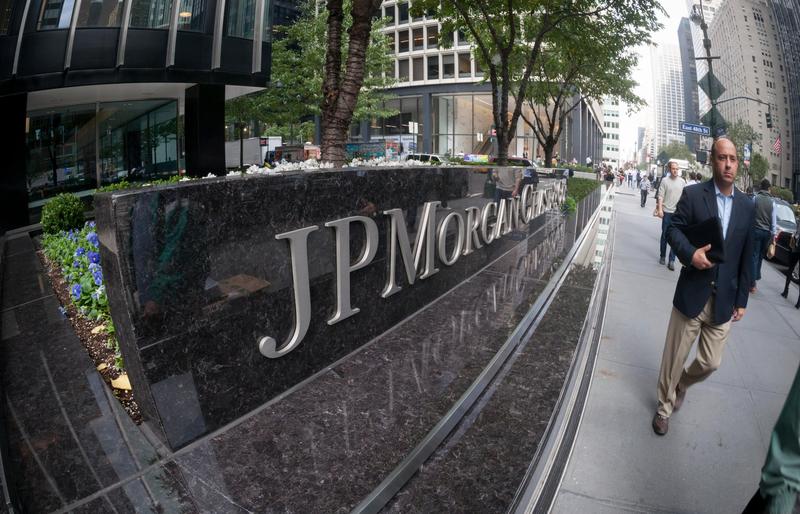Berlin.
When money is tight, many people go to the pawn shop. How the energy crisis and inflation have changed the business.
The woman in the silver coat who, just after 4 p.m pawnshop at the Hermannplatz steps, seems distracted. She pulls a ring out of her pocket. The employee behind the plexiglass pane examines the golden piece of jewelery under a magnifying glass, looks for the engraving and weighs it. “I can give 70 euros for it”. “Can you give me 35 and keep the rest as a deposit?” the woman asks softly into her respirator. Her gaze keeps darting to the ground.
She has been coming here for years, is greeted personally. With the down payment she wants to extend the pledge of her nine valuables that are already here. “I’m sorry, that’s not possible,” says the employee in a friendly but firm manner. “My hands are legally tied. Come back on the 31st and pay the fees at once. Otherwise we have to auction off her valuables.” The customer accepts the money. “And put it away well,” she calls out pawnbroker after leaving the store.
Pawnshops: “There are no petitioners here”
“We have around 80 percent regular customers here,” says Wiebke Feuser, co-owner of the pawn shop on Hermannplatz in Berlin-Neukölln. Together with her family, she runs a total of six businesses in the fourth and fifth generation. Not untypical in the industry. Feuser’s ancestors opened the first company in 1906 in Hamburg-Eimsbüttel.
When asked whether pawnshops are the “last resort” for customers, as often described in media reports, Jeanette H. immediately shakes her head. “There are no petitioners here,” says the branch manager. “We serve all age groups and everyone social classes, not just the poor. People shouldn’t be embarrassed when they come to us.” On the one hand, there is a great fear of stigmatization, she explains. On the other hand, it also has to do with a wicked image of the past. Back then, the shops would have been located in dimly lit courtyards or on the upper floors.
Energy crisis: “People are shitty, hardly ever go out”
Today, the shops are located in busy shopping streets, including the pawn shop on Hermannplatz. A bakery on the left, a pharmacy on the right. The interior: sober like a bank branch. Carpet covering, four paneled counters are lined up. If you want maximum discretion, there are two separate cabins available. It is quiet – everyday life in Neukölln is raging outside. Hipsters, drug addicts, veiled women meet; Pedestrians discuss loudly on cell phones, hip-hop booms from passing cars.
Also read: Student in the energy crisis – “The financial insecurity scares me”
A woman, perhaps around 50, with jet-black hair tied back in a tight braid, pawned two necklaces and a plain ring. There’s 900 euros for that. Like all of the customers in this text, she does not want to read their names in the newspaper. She runs a late night shop and a burger shop on Ku’damm. She says. Her parents came from Turkey, “but I’m a real Kreuzberger.” She has a subtle smoker’s smile and pats you on the shoulder several times during the conversation.
What does she need the money for? “Financially, I rolled over my head.” Last year her mother and a good friend died. “Since then I want to enjoy life, have a good party.” There is now a lack of money in other areas, also because business was worse. “People are shitty and hardly ever go out anymore. Everything is getting more expensive, the apartments have long been unaffordable.” She makes no secret of her mistrust of politics. “This is the real mafia. My tip: get out, leave the country.”
Pawnshops in times of crisis: when the owner expects the “big” rush
When crises too loss of wealth lead, then pawnshops would have to benefit properly, one might think. But reality looks different. When more than ten years ago the global economy crashed, the business crashed. When a number of businesses had to close for months during the corona pandemic, pawnbrokers were allowed to keep their doors open because they were classified as systemically important. But the run didn’t materialize – possibly because people consumed less during the lockdown. And now there is a shortage of money as inflation drives up food and energy prices. How does that work?
Apart from the fact that customers complain about it, says branch manager Jeanette H., people who haven’t been to the pawnshop for a few years are also coming back. They also noticed an increase in craftsmen. “But not because they’re short on cash, no, but because their customers can’t pay their bills,” says owner Wiebke Feuser. She expects the “really big” rush next year, when the utility bill ends up in people’s mailboxes.
In 2020, pawnshops turned over almost 109 million euros
“Our business has picked up noticeably,” says Wolfgang Schedl, Managing Director of the Central Association of the German Pawn Loan Industry. This would also be due to the increased cost of living. Around 150 privately run pawnshops with 250 branches belong to the association, as well as two municipally operated shops in Mannheim and Stuttgart. Since 2015, the net turnover of pawn shops in Germany has increased continuously. In 2020 it was almost 109 million euros. Five years earlier it was less than half as much.
Also read: With these tricks you can still save money at the end of the year
Schedl explains the advantages of the pawn loan: In times of financial instability, it becomes more difficult for many people to obtain a loan. “For us, on the other hand, the credit rating is irrelevant.” Because customers are only liable for the loan and not for their assets, there is no risk of falling into a debt trap. “Everyone gets money quickly and unbureaucratically, regardless of social or economic status.” Even a negative Schufa entry is not an obstacle. Therefore, as Schedl puts it, pawnshops also have “a certain social function.”
Pawn loan: This is how the system works
The conditions are laid down in law in the Pawnbrokers Ordinance of 1961. The minimum term of a pledge agreement is three months plus a waiting month, but it can be extended. The loan bears interest of one percent every month, plus a fee is due. For loans up to 300 euros it is 2.5 percent, beyond that it can be freely negotiated.
A deposit will be auctioned off after four months at the earliest if it is not collected. The owner is entitled to a surplus. He has three years to collect the money, otherwise it goes to the state. Association leader Schedl says: “Many have the wrong idea that the pawnbroker is entitled to the additional proceeds.” But he prefers it when customers redeem their deposit. According to Schedl, the pick-up rate is over 90 percent.
Fake luxury watches: now “nearly perfect”
In the pawn shop on Hermannplatz, gold jewelry is the most reliable barter goods, and the employees always have the current price of gold to hand. Electronic devices are rarely borrowed, even more rarely things such as model railways or e-bikes. The pawning of luxury watches is complicated, explains branch manager Jeanette H., because the counterfeits are now “almost perfect”.
Not all customers have realistic price expectations, she says. For some, the frustration is great when they are offered less than hoped for. “They think they get exactly what they paid for when they bought it. Then it can get louder.” But on this day it stays quiet.
A bag full of gold jewelry
Customers have to show their ID and sometimes a bill, within minutes there is money. A 30-year-old man, easily two meters tall, is waiting on a chair next to the entrance for the loan to be paid out. What drives him here? Sometimes it’s the broken washing machine, sometimes it’s a friend’s birthday, he says. Or simply to make ends meet. The smell of alcohol comes from his mouth. “I’m here every three months.” He is employed in the “cleaning trade”, but the effects of inflation do not give reason to visit the pawn shop more often. Today he takes home 160 euros for a silver chain and bracelet.
Also read: Which companies pay inflation premiums – and which don’t
Sometimes things get weird. “We’ve had customers who brought in their intimate jewelry,” says owner Wiebke Feuser. She also remembers a man who arrived with a bag full of gold jewelry. He urgently needed money to finance a machine for his company. At first she was skeptical, but the customer had papers with them that could prove that the company really existed. He received a loan of 100,000 euros. A few weeks later he came back and redeemed his deposit.
The fates of the customers “get under the skin”
And sometimes there’s something therapeutic about a pawnshop. Customers are often open about their fate, says employee Gabriela Bandoly. “Then it helps to listen and now and then to give some well-intentioned advice.” There is, for example, the middle-aged man who enters the shop in the afternoon to extend his deposit. He starts talking about his father-in-law, who recently collapsed at 67 while walking in Poland, had a heart attack. “Simply that way”. The transfer of the body to Germany and cremation, he complains, are “unfortunately quite expensive.” “Such stories get under your skin,” says Bandoly afterwards.
At the same time, a woman is standing at the counter of jewelery expert Gülten Gemici, with big bags under her eyes. She pledges a gold chain, with a pendant in the shape of a cedar, like the Lebanese flag. What she says is touching. She comes from Lebanon and had a forced marriage behind her. She has lived in Berlin since the mid-1980s. Her five children are all out of the house, but the money is not enough either way.
There are still ten days until the end of the month, until then she will have to endure with the 80 euros she received for the chain. “I urgently need money for food,” she says with a mixture of resignation and despair. A few months ago she was able to buy something to wear from the loan, but since prices have soared everything has been spent on groceries. “It’s bad,” she says, “it’s really bad.”
More articles from this category can be found here: Politics


